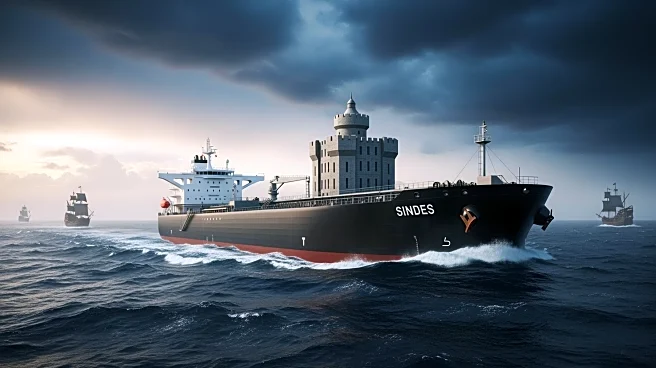What's Happening?
A Greek-owned tanker, Hellas Aphrodite, was attacked by pirates off the coast of Somalia. The incident occurred approximately 550 miles from Mogadishu, where the tanker was approached by a small craft.
Despite evasive maneuvers, the pirates managed to board the vessel after firing small arms and RPGs. The 24-member crew has secured themselves in the citadel and are in contact with the vessel's manager, Latsco Shipping. The tanker, flagged in Malta, was transporting gasoline from India to South Africa. EUNAVFOR Operation Atalanta has a frigate nearby, ready to respond. This attack follows a recent failed boarding attempt on another tanker, raising concerns about a resurgence of piracy in the region.
Why It's Important?
The resurgence of piracy off the Somali coast poses significant risks to international shipping routes, particularly those transporting vital goods like fuel. This incident highlights the ongoing threat of piracy, which can disrupt global trade and increase shipping costs due to the need for heightened security measures. The use of a mothership by pirates suggests a more organized approach, potentially leading to more frequent and sophisticated attacks. The international community, including naval operations like EUNAVFOR, plays a crucial role in deterring piracy and ensuring the safety of maritime routes.
What's Next?
Authorities are closely monitoring the situation, with naval forces in the region prepared to intervene. The incident may prompt shipping companies to reassess their security protocols and consider deploying armed guards on vessels. Additionally, international naval operations may increase their presence in the area to deter further attacks. The ongoing threat of piracy could lead to increased collaboration between nations to address the root causes and improve maritime security.










